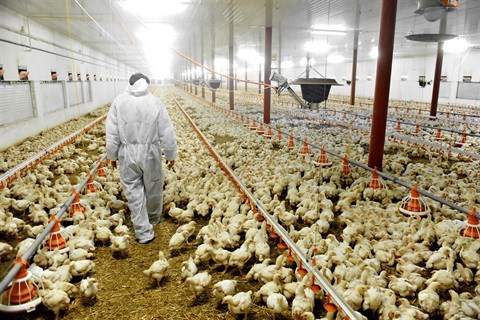Local poultry producers are facing serious operation challenges emanating from trade regulations, and as a result, their employees are threatened with imminent retrenchment.
According to Sol Motsepe, Senior Executive: Broiler Liaison at the South African Poultry Association (SAPA) about 20,000 people may lose jobs if the government does not act decisively to clamp down on the import of cheap chicken from the European Union.
"Already local big and small poultry producers are losing tens of millions of rands every week," says Motsepe. "In recent past, seven small- to medium-sized poultry farms have closed and others have gone into business rescue proceedings, with more than 2,000 jobs lost. Larger poultry producers, on the other hand, have shed a further 3,000 quite recently."
Motsepe says South Africa is among the most unprotected in the world, resulting in European Union countries such as Netherlands, United Kingdom and Germany taking advantage of this to dump massive quantities of cheap chicken.
Increased tariffs on imported chicken
The Minister for Trade and Industry, Dr Rob Davies subsequently increased tariffs on imported chicken from Brazil in August 2013. This is allowed by the World Trade Organisation in terms of the rules of fair trade that aim to safeguard local industries against a flood of foreign imports.
"For example, Nigeria, Kenya and Swaziland don't allow imports at all, Botswana and Mozambique issue very few import permits, while Namibia restricts chicken imports through a quota system," says Motsepe. "We cannot be any different in protecting our industry and the 120,000 jobs that are under threat."
Worldwide, countries impose massive tariffs to protect their industries while others use sanitary conditions to stop imports into their home markets. Before the tariff increase, Brazil, for example, exported vast quantities of chicken to South Africa while effectively closing their market to South African exports. The EU, a massive exporter of chicken to South Africa, imposes a tariff of between R5 and R12 per kilogram, Canada applies a 249% tariff on most imports, Norway 306% and Mexico 234%.
The rural economy, its sustainability and future development is also at risk
"Should this continue, as many as 20,000 jobs will be lost in the short term, with fresh investment drying up and no new jobs created. And as the poultry industry accounts for around a third of local maize consumption and almost all the soya, the rural economy, its sustainability and future development is also at risk," says Motsepe.
However, is it not in the consumers' interest to bring in cheap chicken and keep prices low? Motsepe says what may appear to be cheap now is really very costly, not only for jobs, but for South Africa's food security. Once the local industry is forced to close shop, South Africa would be in trouble.
"All countries want to provide enough food for its people. This is key to economic stability. Food imports will only last as long as exporting countries are happy with the prices paid. The minute they are able to get a better price elsewhere, they will sell to that country. South Africa will go hungry, or pay more, which is why nearly all countries with chicken industries don't allow imports or actively safeguard their industries."
"We want to prevent the local poultry production from extinction like it happened with the textiles, rubber, shoe and glass industries. In West Africa, for example, the entire poultry industry was destroyed by a continual flood of cheap imports," says Motsepe. "A slight increase in the price of some chicken products is a small price to pay for saving an industry, protecting 130,000 jobs and creating more, and most importantly, safeguarding our nation's food security."




































